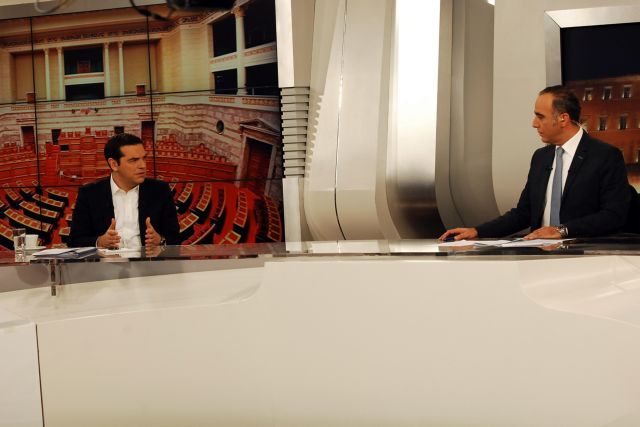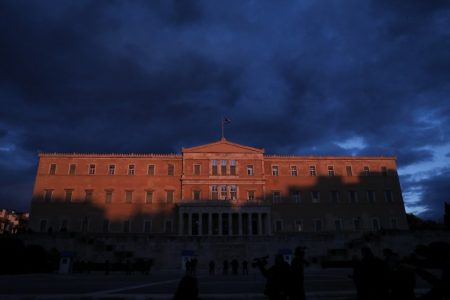The Prime Minister Alexis Tsipras gave an interview on Monday evening on public broadcaster ERT, where he addressed the latest political developments in Greece, the negotiations with the country’s creditors and the refugee crisis, among others.
Greece cannot become a warehouse of souls and stressed that the main issue at hand is to reduce the flow of refugees leaving Turkey. The PM stated that while Greece is scrutinized for not doing enough to curb the wave refugees, no counter-proposals are offered up. He also revealed that Frontex has not responded to Greek requests so far.
Mr. Tsipras argued that while the Greek government is implementing everything that it has agreed to, the refugee crisis has changed the agenda and argued that a national policy is needed to address the dramatic crisis. The PM noted that Greece is taking various initiatives in cooperation with international organizations and underlined that Turkey must also fulfill its obligations.
Regarding the domestic political developments, Mr. Tsipras underlined the need for developing a culture of debate and consent in Greek politics. He also clarified that in the recent political leader meeting under President Pavlopoulos he never asked for an agreement on everything. The PM opined that main opposition party New Democracy is caught up in its internal procedures and argued that while the leader of the Union of Centrists Vasilis Leventis has some good ideas, they are inapplicable.
The Prime Minister also noted that he will continue his talks with the other parties and aim for broader consensus. Despite his government’s slim majority in Parliament though, Mr. Tsipras was confident that he will be able to carry out what is required. He challenged the criticism against his government’s effort, noting that the recent budget approved by Parliament entailed a 5.7-billion-euro fiscal consolidation, when the last budget passed by the Samaras government included a 10-billion-euro budgetary adjustment.
Later on the Prime Minister explained that the bank recapitalization meant that the prospect of bank deposit haircut was averted. He explained that a “success story” is not defined by the various indices, but rather helping people find jobs. According to Mr. Tsipras, his government has managed to reduce the rate of unemployment by 1.5%, which he estimated was the result of creating 112,000 new jobs. As for the measures and reforms that have to be taken, Mr. Tsipras explained that there should be no further pension cuts and argued that employer contributions can be raised a bit to cover needs. The goal, he stated, is to protect healthy entrepreneurship.
Once again, the Prime Minister underlined that the “triangle of sin” is comprised of the “banking, political and media system” and accused the main opposition party of not submitting any proposals on the independent authorities. He also defended his government’s legislative efforts in regulating the media, declaring that rules are necessary.





